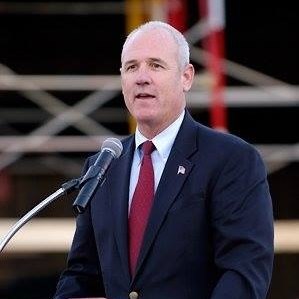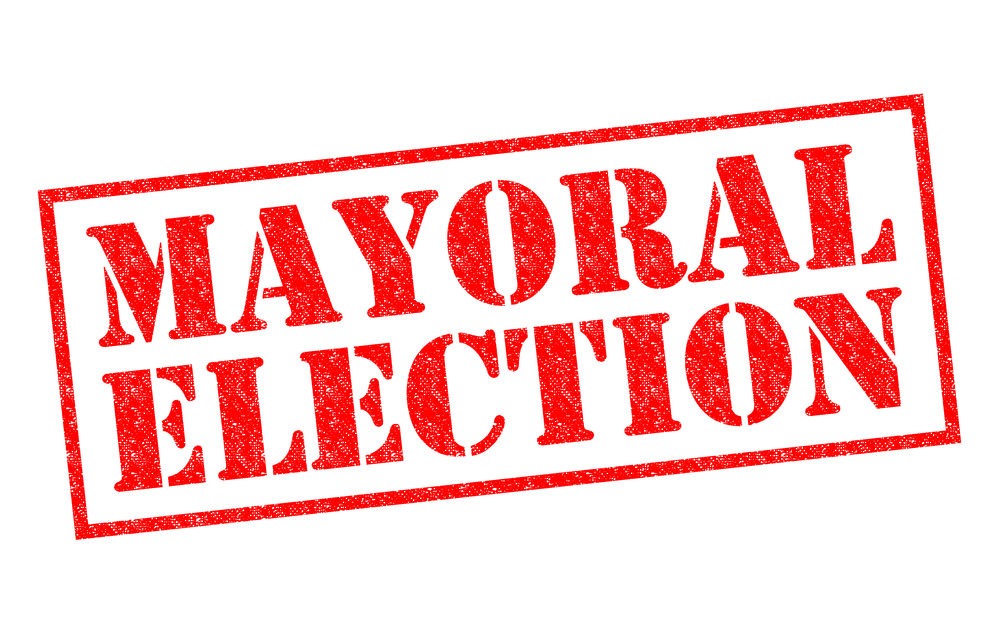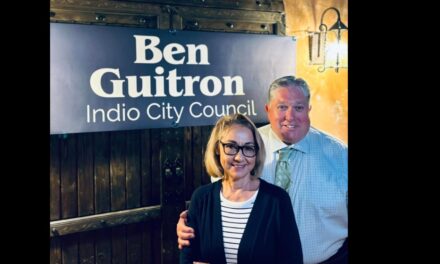PALM SPRINGS — For the second consecutive year, a candidate running for a seat on the City Council is advocating for the City Council to reinstate the position of a directly-elected mayor.
In 2019, then-candidate Alfie Pettit championed the cause. This year, it is former City Councilmember Mike McCulloch, who is running to represent District 4.
 “I support the voice of the people of Palm Springs,” McCulloch told Uken Report. “The directly-elected mayor was decided by a vote of the people in 1981. The City Council should not have unilaterally changed to a rotating mayor without the express permission of the people.”
“I support the voice of the people of Palm Springs,” McCulloch told Uken Report. “The directly-elected mayor was decided by a vote of the people in 1981. The City Council should not have unilaterally changed to a rotating mayor without the express permission of the people.”
On Dec. 19, 2018, the City Council adopted Ordinance No. 1971 enacting a five-district electoral system in which the Mayor and Mayor Pro tem are to be appointed from among the City Council therefore eliminating the position of a directly-elected mayor.
It was then necessary for the City Council to establish a method for selecting the mayor and mayor pro tem prior to the end of the current at-large mayor’s term.
The City Council on April 17, 2019, unanimously adopted a Resolution establishing the procedures for the selection of a mayor. You may read the entire Resolution here.
“The Council could have moved to district elections for councilmembers (four) and left the mayor as a citywide elected position,” McCulloch said. “In fact, that was their duty. Voting is the heart of the democratic process. The decision to move to a rotating Mayor should have been on the ballot. The residents of Palm Springs should have decided. I am against the “cancel culture.” This Council cancelled the 1981 election.”
His opponent, Christy Holstege, was a member of the City Council that voted to eliminate the directly-elected mayor position. She is currently serving as mayor pro tem. If re-elected, she will become mayor in December.
“The vote and the will of the people is being ignored,” McCulloch said. “Everyone in the city should have a chance to decide who represents them as mayor.”
After Pettit and before McCulloch, the late Bill “Bulldog” Feingold issued a public plea for people to help him launch a petition drive because he did not have strength to do it on his own. More than two dozen people offered to help him.
“I’m not going to die until I get my vote back,” Feingold told Uken Report on Jan. 17. “I don’t know what’s worse, getting cancer or having them take my vote away. Both things are aggravating me to death.”
Feingold, 70, maintained that the only reason the City Council voted to rotate the mayor’s position among members of the City Council was to “get rid of Mayor Rob Moon.”
Feingold died on March 6.
When it agreed to rotate the mayor’s position, Palm Springs joined other Coachella Valley communities such as Indio, Cathedral City, Palm Desert, and Rancho Mirage in rotating the position of mayor among city councilmembers.
It is possible, though perhaps not easy, to reinstate the directly-elected mayor position, as McCulloch desires.
“In order for (Mr. McCulloch) to do this, he would most likely need to go through the initiative process, which can be initiated by either a majority vote of the City Council or as a private citizen,” City Attorney Jeff Ballinger told Uken Report.
In 2019 when Pettit championed the return to a directly-elected mayor, City Manager David H. Ready claimed that if an initiative did pass, the city would possibly be subject to a California Voting Rights Violation and-or legal action. Ready did not return repeated requests for comment from Uken Report on McCulloch’s desire to do the same.
When the city of Palm Springs was incorporated 80 years ago, in April 1938, members of the City Council were elected by wards, or districts, according to historical documents. In 1963, voters chose to change the process with the majority supporting at-large elections. Now, we are back where we started.
Image Sources
- Mike McCulloch: Facebook
- Mayoral Election: Shutterstock




![Enrolling Now, Rewarding Careers Ahead [Sponsored]](https://ukenreport.com/wp-content/uploads/2024/04/COD_heroes_1-1385-2-440x264.jpg)


